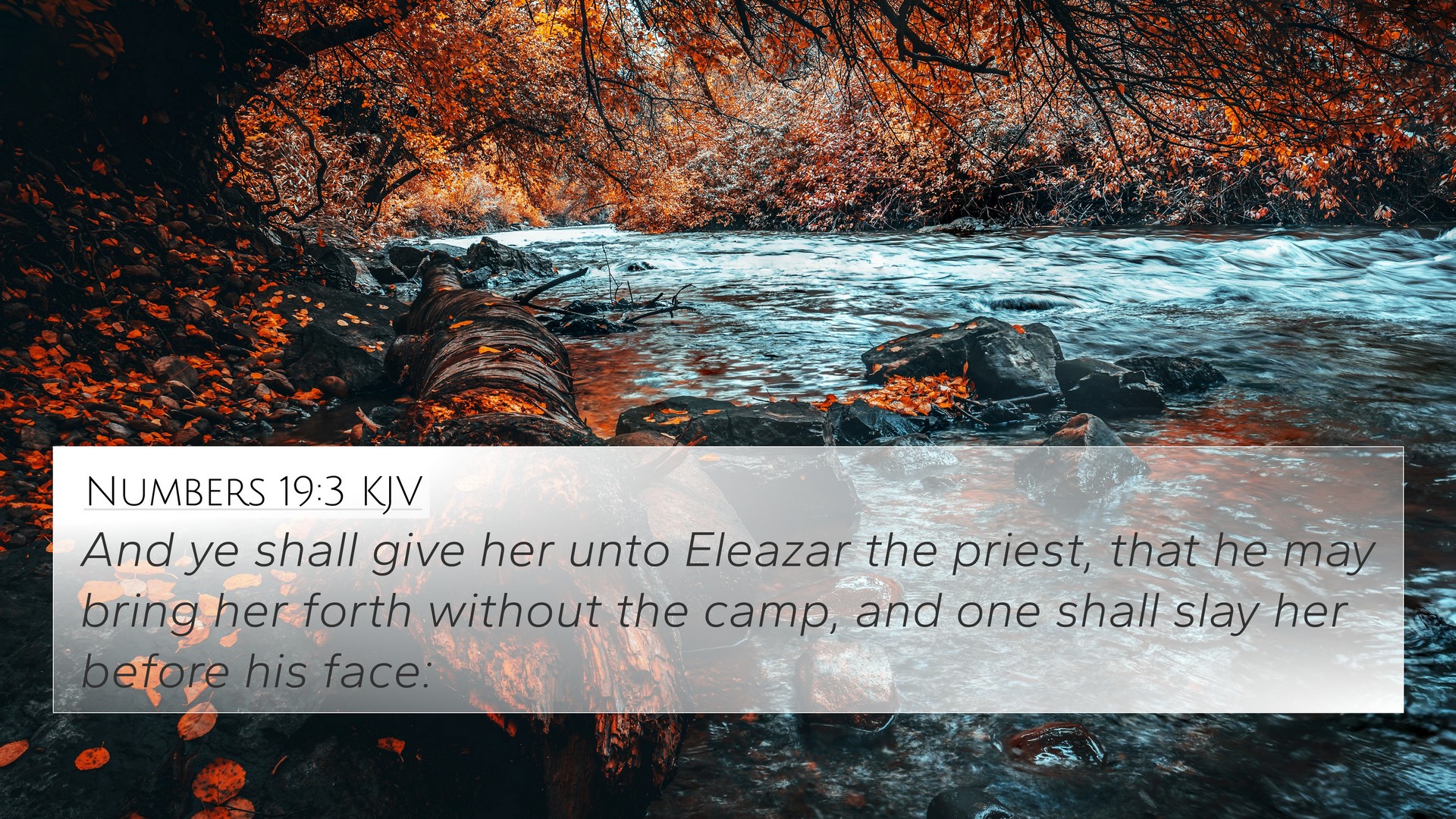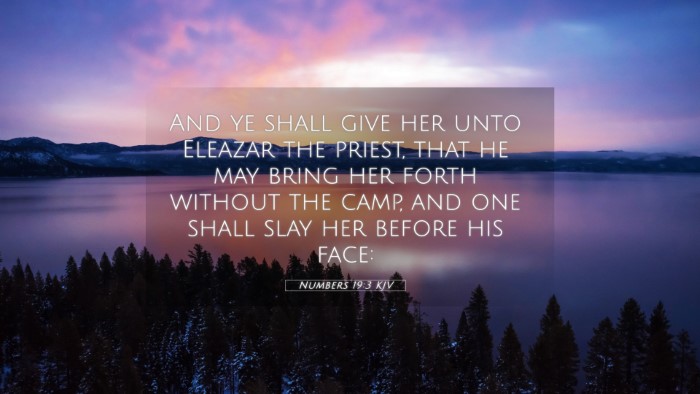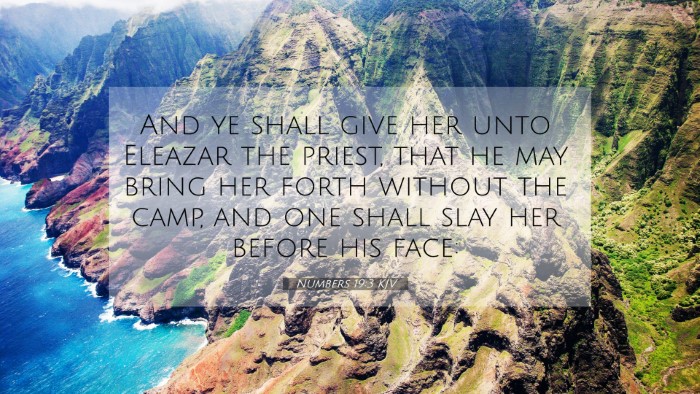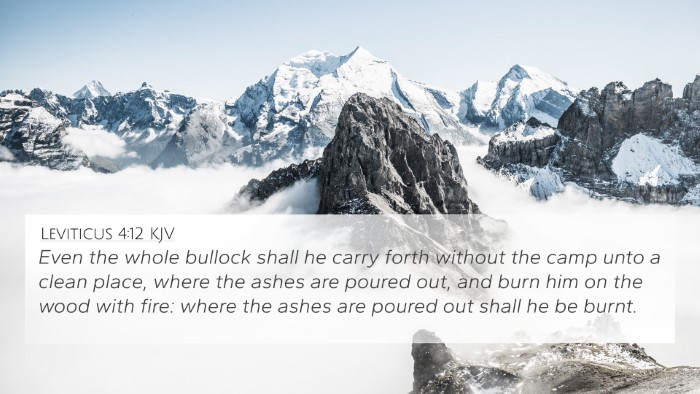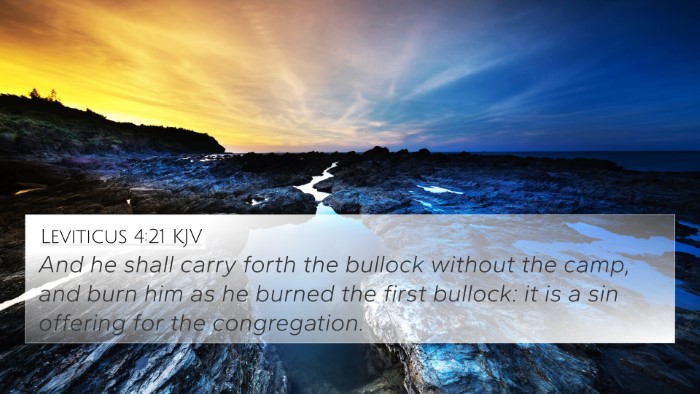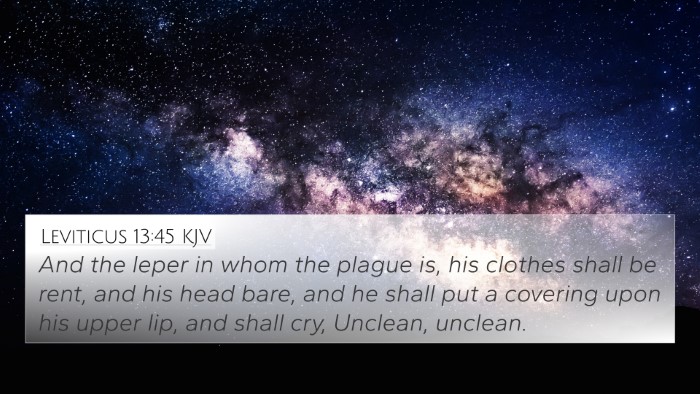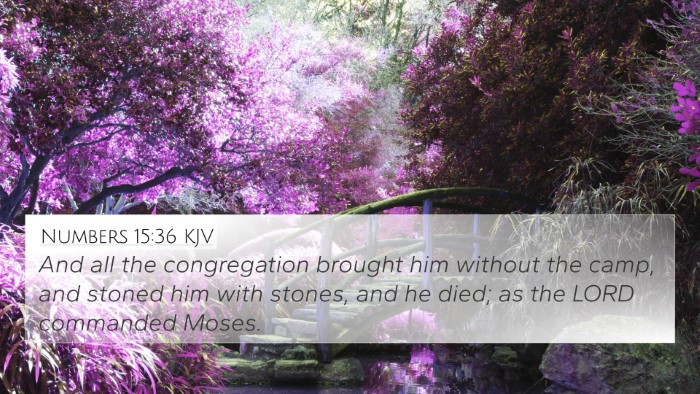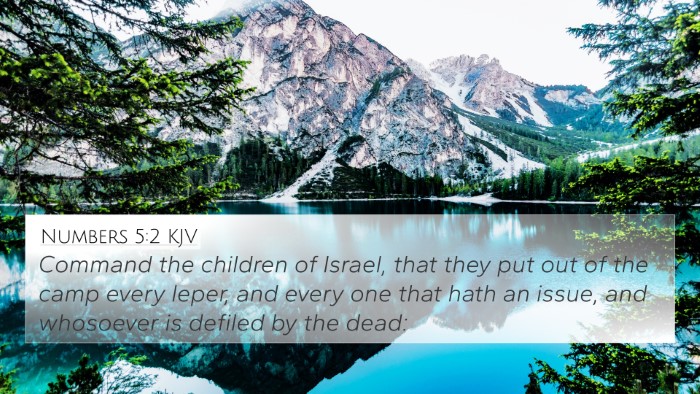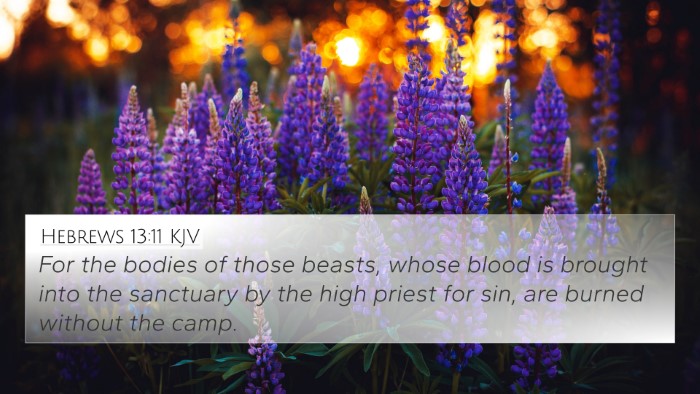Bible Verse Analysis: Numbers 19:3
Verse: Numbers 19:3 - "And you shall give her to Eleazar the priest, that he may bring her forth outside the camp, and one shall slay her before his face."
Introduction
The directive in Numbers 19:3 is part of a larger instruction concerning the red heifer, which plays a significant role in the purification rituals within the Mosaic Law. This verse contains rich theological implications and serves as a foundation for understanding sanctification and atonement practices in the Israelite community.
Summary of Biblical Context
In the book of Numbers, we observe the Israelites navigating their wilderness journey. The purification laws given in this chapter were critical in addressing how to deal with ceremonial uncleanness, especially concerning death. The red heifer is to be sacrificed, and this process is overseen by Eleazar, the priest, emphasizing the role of priesthood in maintaining God’s holiness among the people.
Exegesis from Commentaries
-
Matthew Henry:
Henry suggests that the heifer's sacrifice symbolizes the necessity of atonement for sin and serves as a prefigurement of Christ's ultimate sacrifice. By being taken outside the camp, the heifer represents the removal of sin from the community, similar to how Christ bore our sins outside the gate (Hebrews 13:12).
-
Albert Barnes:
Barnes emphasizes the importance of priestly authority in the sacrificial process, indicating that this was not only a ritual requirement but also a divine mandate that underlines the necessity of approaching God through appointed mediators. His commentary draws parallels to New Testament teachings regarding Christ as our high priest.
-
Adam Clarke:
Clarke elaborates on the implications of the sacrifice as a means of purification for the camp, highlighting how sin requires atonement and that such rituals foreshadow the greater sacrifice of Christ, who cleanses believers from all unrighteousness.
Thematic Connections
- Sanctification: The act of sacrifice points to the need for sanctification within the community.
- Role of the Priesthood: The involvement of Eleazar shows the significance of priestly intercession.
- Purification from Sin: This ritual serves as a reminder of the separation needed from sin.
Cross-References
The following verses relate directly to Numbers 19:3 and deepen our understanding through comparative Bible verse analysis:
- Hebrews 13:12: "Therefore Jesus also, that He might sanctify the people with His own blood, suffered outside the gate." - This verse connects the sacrificial nature of the red heifer with Christ's sacrifice.
- Leviticus 16:10: "But the goat on which the lot fell to be the scapegoat shall be presented alive before the Lord..." - Highlights the theme of sin being carried away.
- Leviticus 4:12: "The whole bull shall be carried outside the camp..." - Echoes the concept of removing sin from the camp.
- Isaiah 53:5: "But He was wounded for our transgressions, He was bruised for our iniquities..." - Foretelling of the ultimate sacrificial act of Christ.
- Matthew 8:17: "That it might be fulfilled which was spoken by Isaiah the prophet, saying: 'He Himself took our infirmities and bore our sicknesses.'" - Acknowledges Jesus' role in taking away sin and affliction.
- Romans 8:3: "For what the law could not do in that it was weak through the flesh, God did by sending His own Son..." - Discusses the inadequacy of the law to save compared to Christ's fulfillment.
- Hebrews 9:14: "How much more shall the blood of Christ, who through the eternal Spirit offered Himself without spot to God, cleanse your conscience from dead works..." - Directly relates to the concept of cleansing through sacrifice.
Tools for Bible Cross-Referencing
For those conducting in-depth studies, utilizing tools for Bible cross-referencing can enhance the understanding of these connections:
- Bible Concordance: Useful for finding specific terms and themes across scriptures.
- Bible Cross-Reference Guide: Offers a systematic approach to exploring interrelated verses.
- Cross-reference Bible Study Methods: Techniques for exploring themes and connecting verses effectively.
Conclusion
Numbers 19:3 serves not only as a significant moment in the ceremonial law but also as a profound illustration of the principles of sacrifice, purification, and the role of Jesus Christ as the ultimate atonement for sin. Understanding this verse in conjunction with its cross-references enriches the study of biblical themes and enhances personal faith journeys.
